An air conditioner is a great machine that helps lower the heat and humidity inside a room. It reduces the risk of health issues such as heat stroke and stress even on a hot day. But what if your American Standard air conditioner isn't serving its purpose? What should you do when it's not blowing cold air? We've asked the experts about this topic so you don't have to!
The reason why your Standard American air conditioner is not blowing cold air could be because of any of the following:
- The compressor is clogged
- Filter and ducts cannot filter the airflow
- There is an open window or door
- The refrigerant has a leak
- The compressor is malfunctioning
When any of these problems occur, then it is a clear sign that your air conditioner needs some maintenance.
Let's dive into more details of the reasons why your AC is failing to blow cold air. Keep reading this post to learn more about this problem and what you can do to address it.
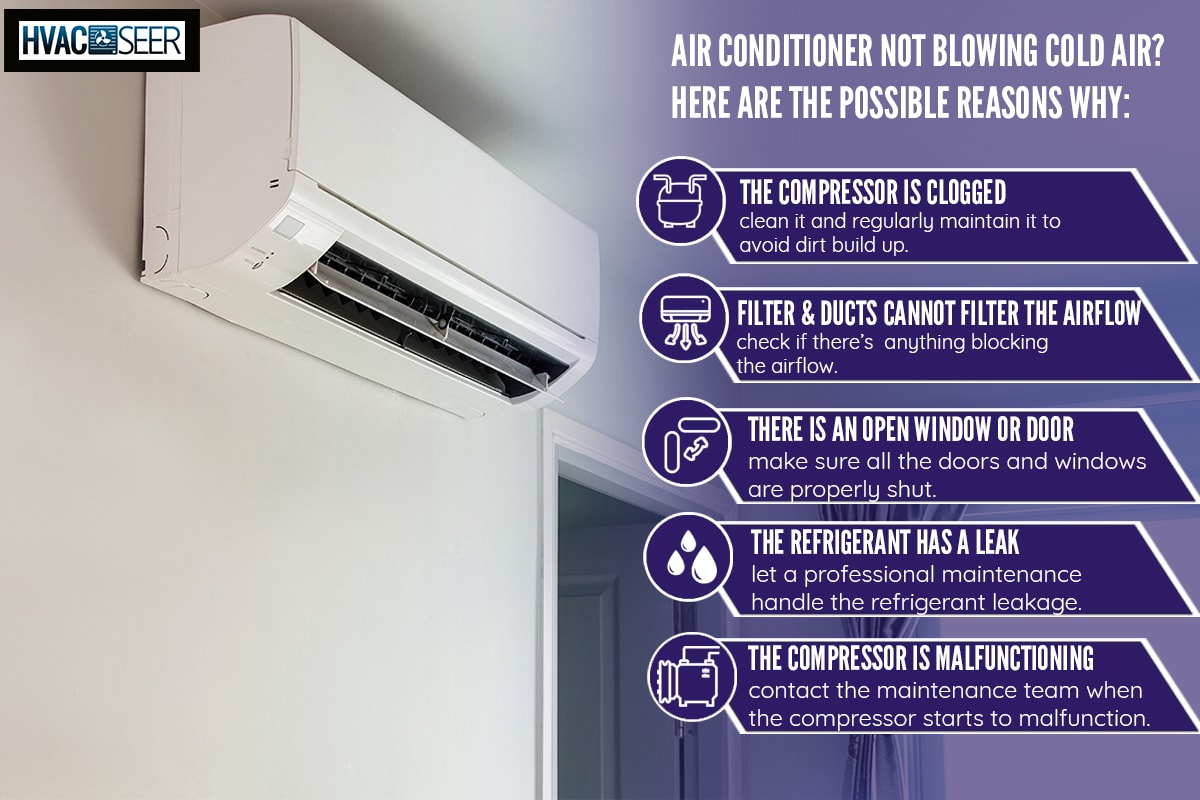
American Standard AC Not Blowing Cold Air - Why And What To Do?
Although American Standard offers professional maintenance services, you can still take a closer look into the details so you can decide whether to give American Standard a call or you'd fix the unit by yourself.
First, let's look at possible reasons why your American Standard air conditioner is not blowing cold air.
The Compressor is Clogged
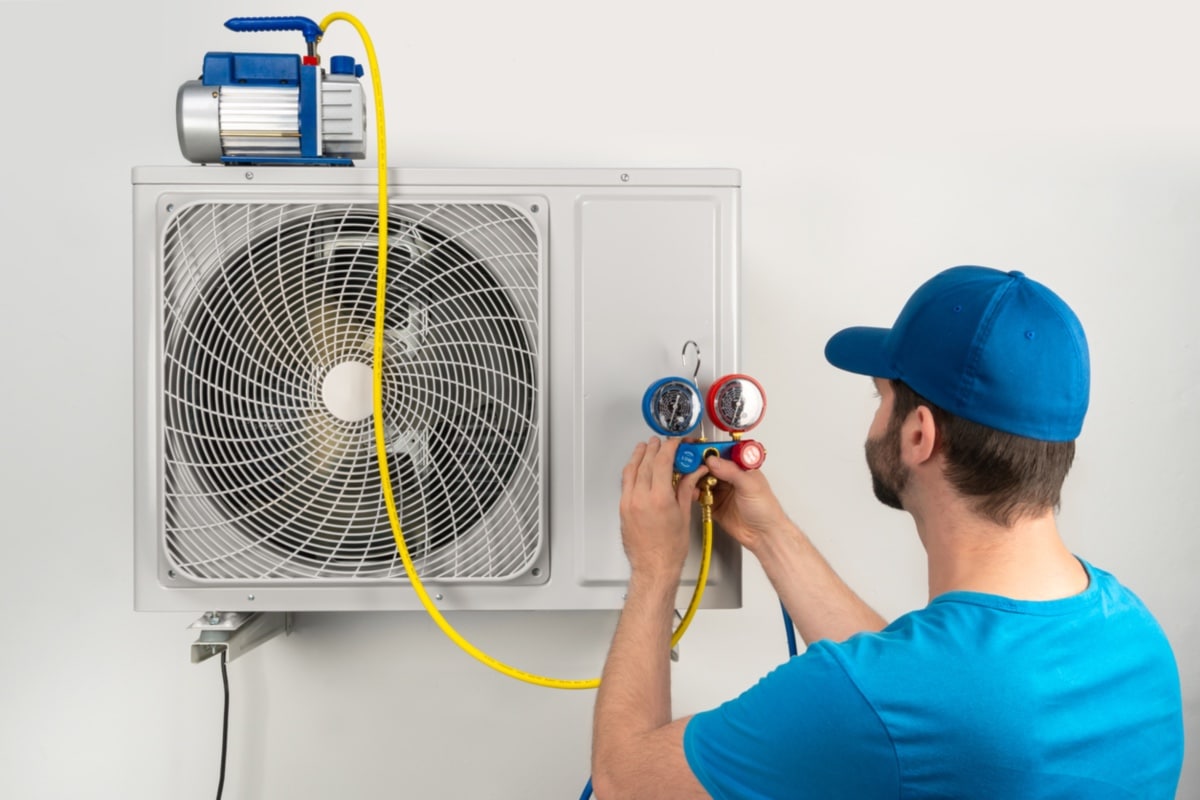
The air conditioner's compressor circulates and compresses the refrigerant so the air conditioner can blow cold air. If the compressor is clogged with dirt or debris, the compressor will not be able to function. Since American Standard air conditioners have outdoor compressors, it is more prone to having blockage problems.
You can check the outdoor compressors to see if there is something blocking the circuit. Clean it and regularly maintain it to avoid dirt buildup that can affect the compressor's function.
Your unit failing to blow cold air is only one issue this problem can cause. The compressor can also overheat and malfunction due to the clogs.
Filter and Ducts Cannot Filter The Airflow
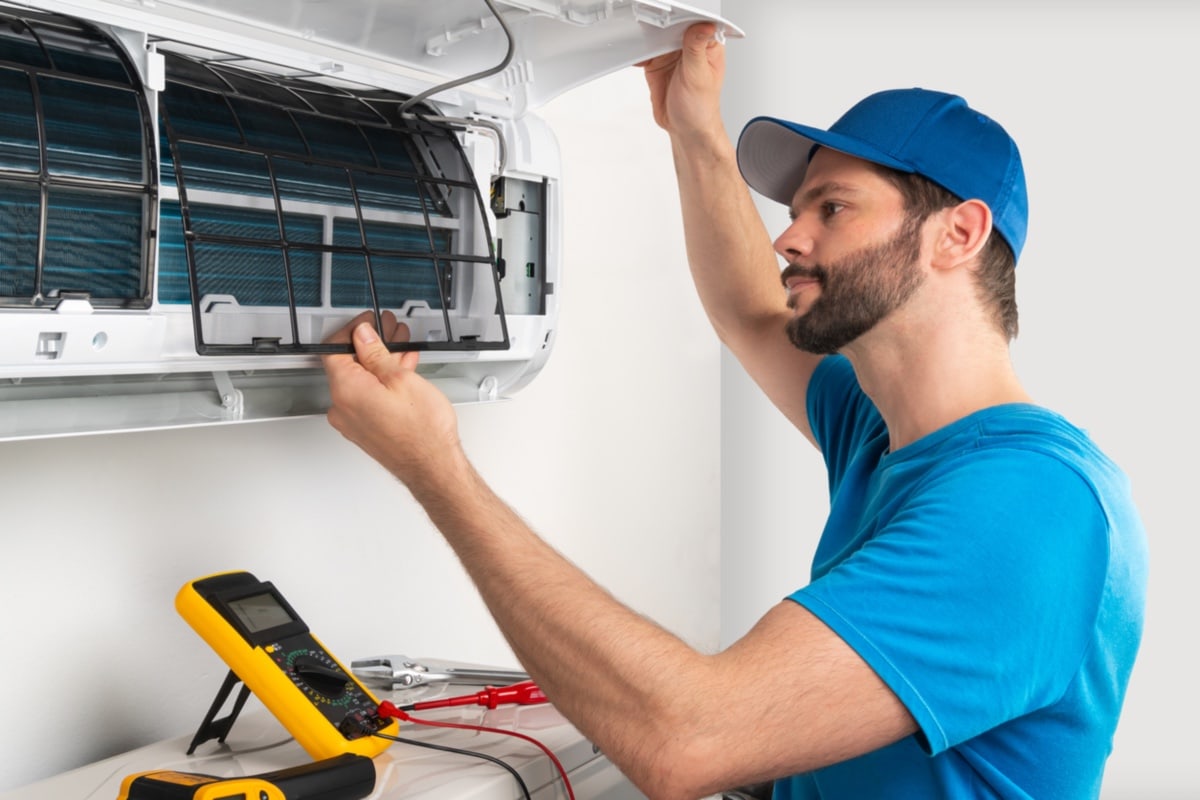
Clogging does not only occur in the compressor. It can also happen in the air conditioner's filter and ducts. These two important parts help filter the air flowing to the circuit. When these parts have dirt buildup or debris blockages, the air conditioner will have a hard time blowing cold air.
Check the filter and ducts to see if there is anything blocking the airflow. Regularly clean the air filter and ducts to prevent dirt buildup that can affect the overall air circulation.
There is an Open Window or Door
An opening like a window or door can decrease the cooling power of your air conditioner because humid air can come inside the space where the air conditioner is trying to lower the temperature. Make sure that all doors and windows are properly shut.
Click here to see this American Standard air conditioner on Amazon.
The Refrigerant Has a Leak
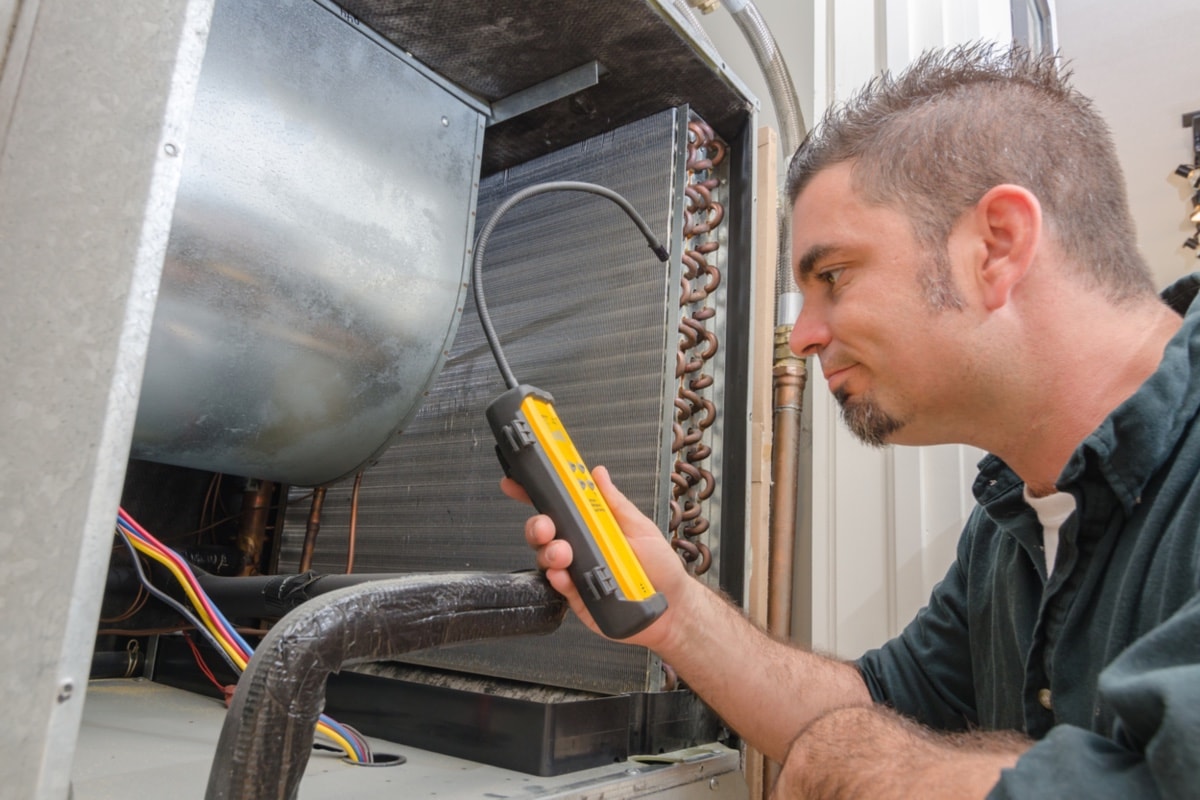
The system's refrigerant is one of the most important components of an air conditioner. It absorbs the heat around it and converts it into cold air, which the air conditioner produces after getting combined with the other components present in the system.
Leaking refrigerant can cause the air conditioner to struggle in cold air production. Not only that it can affect the air conditioner's efficiency. The leak can also cause the other components of the air conditioner to work harder, which can cause a higher electricity consumption.
Some signs that the air conditioner's refrigerant is leaking are low cold air production, an increase in your electricity bill, loud noises coming from the air conditioner, or even health problems like dizziness and nausea caused by refrigerant poisoning.
It is highly recommended that you let a professional maintenance team handle refrigerant leakage. The technician will use a patch designed for refrigerant leakage, or they will replace the coil if the hole is too big.
The Compressor is Malfunctioning
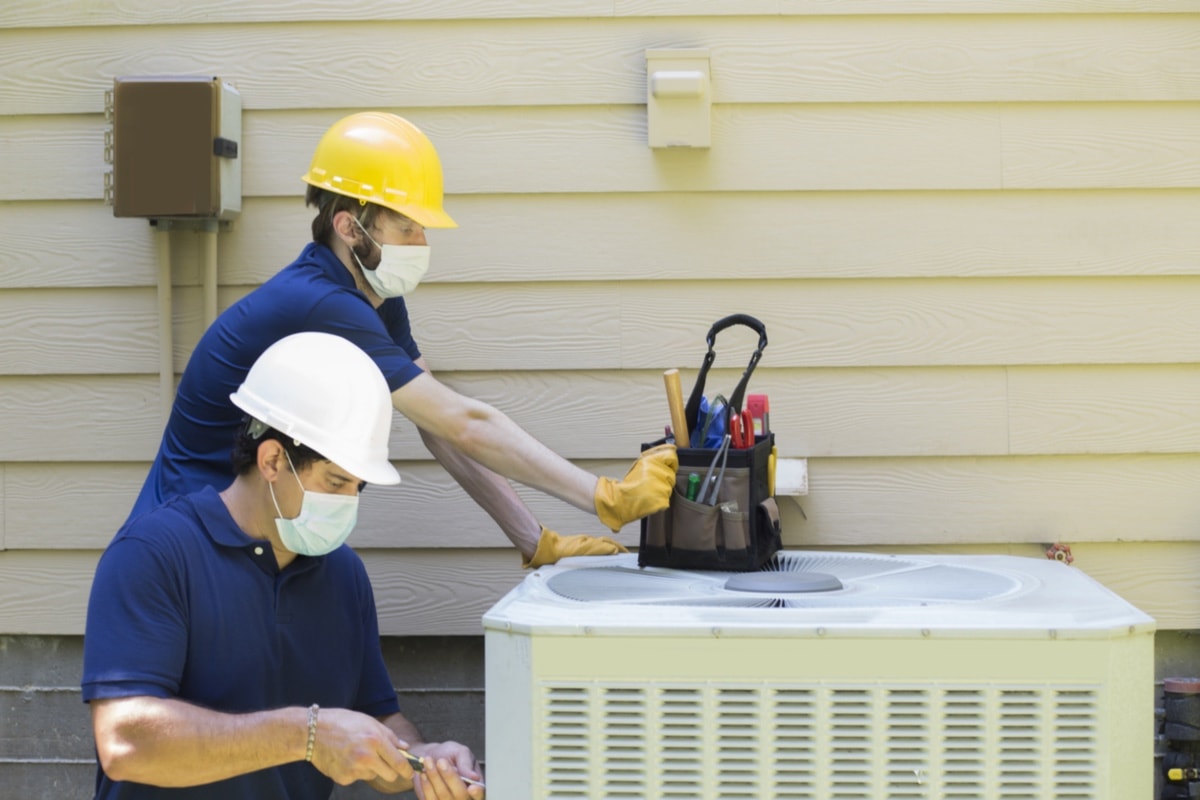
A faulty compressor can make it harder for your AC to produce cold air and increase its energy consumption. This may be caused by the following reasons:
1. Overheating
Since the compressor is placed outside, the compressor can overheat if there is no proper ventilation and when direct sunlight heats up the compressor.
Another reason why compressors overheat is because of dirty coils.
High voltage can also burn the motor, causing the compressor to overheat.
When you do not resolve the issues that cause the compressor to overheat, an overheating compressor will lead to a complete malfunction. You can cover the compressor to avoid direct sunlight from increasing its temperature.
Click here to see this air conditioner cover on Amazon.
2. Power Surge and Electrical Failures
Acid builds up in the circuit when there are faulty fuses, wires, or contactors in the system, while power surges can burn the motor and the other components of the compressor.
3. Condenser Coils are Clogged
A lack of maintenance in the condenser coils can lead to dirt buildup. The condenser coil cannot produce heat to the compressor when it is clogged, thus, leading to a compressor malfunction.
4. Displaced Evaporator Motor
A displaced evaporator forces the refrigerant to return to the compressor, causing a lubricant issue in the system. When left unresolved, the compressor will soon suffer from a complete malfunction.
5. Low or High Refrigerant Level
A low refrigerant level can cause the compressor to work harder in order for the refrigerant to reach the system, while a high refrigerant level increases the pressure level in the compressor. The refrigerant level should always match the manufacturer's recommended level to avoid compressor malfunctions.
6. Oil Carbonization
An increase in the temperature inside the compressor may lead to oil carbonization in the discharge valve. When oil carbonization occurs, the valve gets weak until it finally leaks. The temperature will further increase due to the leakage, and will soon cause the compressor to collapse.
7. Low to Zero Lubrication
The absence of lubricant oil in the compressor causes the components to rub against each other, making the compressor break down. When parts of the compressor rub against each other, smaller parts can break or loosen, leading to a more serious problem like a total compressor breakdown.
Make sure to always inspect the evaporator, condenser, compressor shaft seal, and the pipes inside the compressor to avoid low lubrication levels.
8. Faulty Suction Lines
When suction lines are clogged, damaged, or cracked, the compressor needs to work harder to push the refrigerant into the system. A stressed compressor will soon break down when the suction lines are not fixed. Using the wrong suction line sizes can also lead to a compressor malfunction.
It is highly recommended to contact the maintenance team when the compressor starts to malfunction. There are parts of the compressor that should only be handled by professionals to avoid further damage.
How To Make The Air Conditioner Produce More Cold Air?
In order for the air conditioner to blow more cold air, make sure that all doors and windows are closed so that humid air will not come in and lower the cooling efficiency of the unit. Make sure that the air conditioner does not suffer from system failure before setting the thermostat to a lower temperature.
How To Detect a System Failure in The Air Conditioner?
If you're sure that there is no way the humid air can still come inside the room, then your air conditioner might be experiencing a system issue that prevents it from working efficiently.
Your air conditioner might be suffering from a system failure if:
- The air conditioner does not produce sufficient cold air
- It makes a loud noise
- It does not turn on/off
- Vents produce warm air
- There is an increase in the electric bill
You can avoid a system failure in the air conditioner by regularly cleaning and maintaining it. It is recommended to schedule your air conditioner for a maintenance check once every 12 months, depending on how often you use your air conditioner.
If you are using your air conditioner all throughout the day, it may require you to do more than one maintenance checkup. Keeping the air conditioner in great shape will make it function efficiently, and will help you save up money by not paying for the extra electricity consumed when the air conditioner is faulty.
Wrapping It Up
American Standard provides high-end air conditioning units to ease the heat inside our homes. If you think that the air conditioner's problem is something you cannot handle on your own, seek help from a professional to avoid further damage to the unit.
Maintaining the air conditioner won't just keep you cool. It will also reduce technical issues with the air conditioner, increase its lifespan, and can save you money in the long run.
Before you go, don't forget to check out these articles, too:


